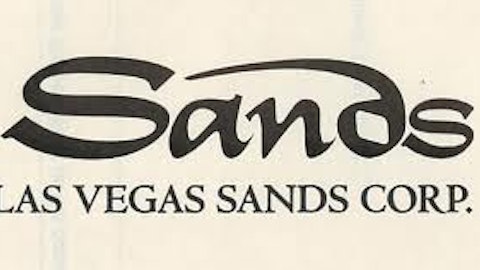A Form 4 filed with the SEC shows that David Roberson, a former Hewlett-Packard Company (NYSE:HPQ) executive who sits on the Board of Directors of International Game Technology (NYSE:IGT), bought 12,000 shares of International Game’s stock on November 30th at an average price of $13.94 per share. Roberson now owns a little over 18,000 shares, so this was a big purchase in percentage terms. We think that company insiders should tend to avoid buying the stock, as it reduces their diversification and leaves them more exposed to company-specific risks, unless the insider- benefitting from having more knowledge of the business and the industry than the average investor- is very confident that the stock will outperform. This is our explanation for why stocks bought by insiders beat the market on average (read more about studies on insider trading). Our database of insider purchases at International Game shows that another Board member bought stock in November at an average price of $13.25. Since consensus insider buying is a particularly bullish signal, we think it’s a good idea to take a closer look at the provider of electronic gaming systems.
The company’s fiscal year ended at the end of September. International Game Technology reported that revenue had risen 10% from the last fiscal year, with the largest increase in sales coming in the small Interactive segment. This increase in Interactive was partly due to an acquisition. Operating income dropped 16%, but that was entirely due to acquisition related costs and an increase in impairment and restructuring charges. With research and development expenses being 10% of sales after increasing about in line with revenue, it looks to us like the core business is doing moderately well. The fourth quarter of the fiscal year reflected a particularly impressive improvement from a year earlier, with revenue and earnings each increasing by over 15%.
At a market capitalization of $3.9 billion, International Game trades at 17 times trailing earnings. As we’ve noted its earnings have been brought lower in recent quarters by what should not be ongoing charges, so net income would be expected to improve going forward. Wall Street analysts agree with this logic, as consensus earnings for the current fiscal year are $1.21- a sizable increase, and implying a current-year P/E of 12. If the company turns out to be on track to reach that figure, we’d consider it as a value stock as the core business would need only modest growth to justify that valuation.
International Game Technology was one of Ariel Investments’ 10 largest holdings by market value at the end of September. Ariel was founded in 1983 by manager John Rogers (check out more of Rogers’ favorite stocks). The stock was also a favorite of Gates Capital Management, which made International Game its second largest position after increasing the number of shares in its portfolio by nearly 400% over the course of the quarter. Billionaire Steve Cohen’s SAC Capital Advisors also added to its stake, closing September with a total of 1.6 million shares (see Cohen’s top stock picks).
Bally Technologies Inc. (NYSE:BYI) and WMS Industries Inc. (NYSE:WMS) are two other gaming device and software companies. Their stocks trade at 12 times forward earnings estimates, based on expectations for the fiscal year ending in June 2014. As a result they seem priced right in line with International Game. These peers have also been recording good financials, with growth in both revenue and earnings in their most recent quarter compared to the same period in the previous year. Bally, in particular, recorded over a 20% growth rate in both top and bottom lines. They might be even better buys, and even with consensus insider buying at International Game investors should at least consider all three.
Of course, we can also consider casino stocks as being exposed to similar industry dynamics. Las Vegas Sands Corp. (NYSE:LVS) and Wynn Resorts, Limited (NASDAQ:WYNN) have forward P/Es in the 17-18 range, and this incorporates expectations of good growth next year as neither stock trades below 20 times trailing earnings. These are of course significantly larger companies in terms of market cap, but earnings are down. As a result we’d prefer the gaming stocks to buying casinos.





